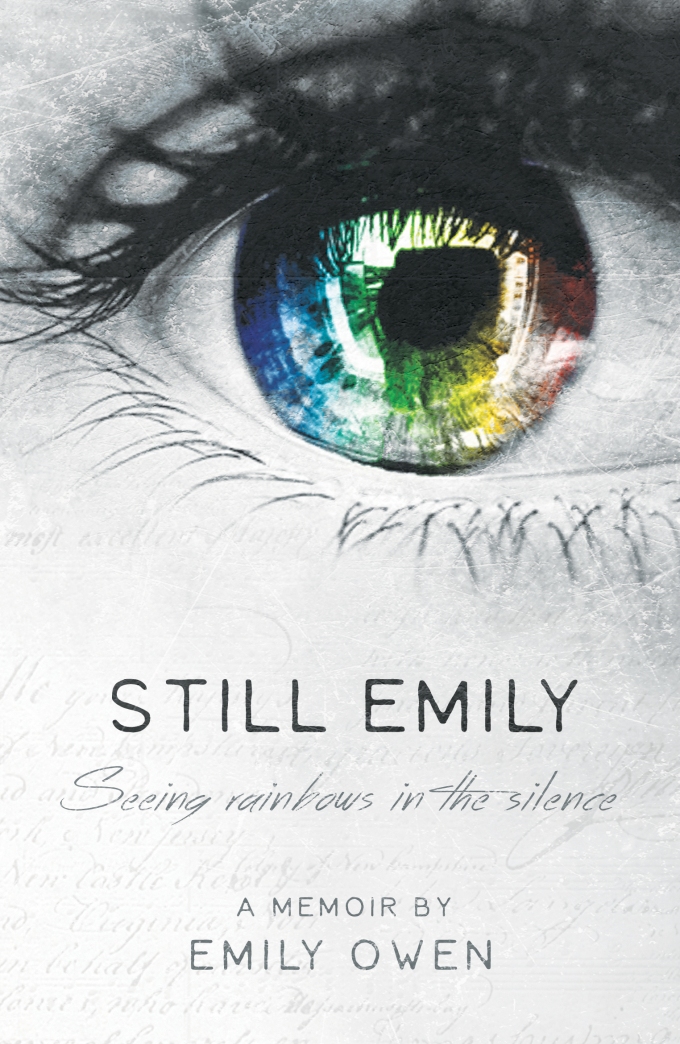This week we feature the second guest blog from author Emily Owen…
Pardon? What?
If it were possible to wear words out through overuse, I would have single-handedly rendered these two extinct.
But until I was almost exactly 21 ½ years old, I rarely said “What?”
Or “Pardon?”
In fact, they may have been in danger of extinction through lack of use.
The hearing in my right ear was perfect so, despite being deaf in my left, as long as I positioned myself correctly I could hear a proverbial pin drop.
And I was expert at positioning myself correctly.
I had to be, my innate nosiness demanded that I didn’t miss a thing.
Then, when I was almost exactly 21 ½ years old, “What?” and ”Pardon?” became my mantra.
Due to a condition called Neurofibromatosis Type 2, I lost all my hearing. In my case (though not necessarily typically), overnight.
A benign tumour pressing on my auditory nerve had to be surgically removed.
When it left, silence moved in.
Slightly unexpectedly for me, when the tumour left it was accompanied by my confidence. I’d anticipated that I’d struggle, just not how much.
I didn’t want to leave the house.
I didn’t want to see friends.
I just wanted to hide from the sounds I couldn’t hear.
Gradually, very gradually, confidence decided to move back in.
One step at a time.
I was brave enough to leave the house.
I began to see friends.
I began to meet stranger’s eyes as I passed them, rather than pointedly stare at the pavement.
The day I not only met their eyes but said “Good Morning” to someone as we walked our dogs in the park was a momentous day indeed. And yes, I did hurry on so there would be no follow up chat – one step at a time…
It was not long before my two-word mantra grew. What and Pardon were joined by “No.”
Friends began to say, “you should write your Autobiography.”
I laughed. Apart from anything else, who would want to read it?!
“No.”
Then strangers began to say, “you should write your story.”
I didn’t laugh then. Outwardly, anyway. I was politer with strangers than I was with friends.
Still: ”No.”
I did begin writing.
Just not writing about me.
And that’s how I liked it.
Publishers suggested I write my story.
“No.”
I started speaking to groups about my story, many of whom suggested I write the book.
“No.” No, no, no, no, no.
But, in the end, beginning to lose count, I thought: ‘how many no’s does it take to make a yes?’
And I realised it was the exact number of no’s I’d said.
So, albeit reluctantly, I made a yes.
And I began to write my story so far.
If you want a synopsis well, I guess you’ve just read it.
If you’d like to know more, I’d be honoured if you read the book. I promise it’s not simply a more detailed description of the momentous day I walked my dog in the park (although, thinking about it, perhaps it could have been: Jasper was a very special dog).
My memoir is called: ‘Still Emily – Seeing rainbows in the silence’.
Life changed that day when I was almost exactly 21 ½ years old.
I didn’t only lose my hearing and my confidence.
I lost myself.
I lost who I was.
Eventually, through pain-full times, I came to realise that I was still there.
Still Emily will be published on May 11th 2016.

Book launch in Leicester – everyone welcome! Details here.
Check out Emily’s promotional video here